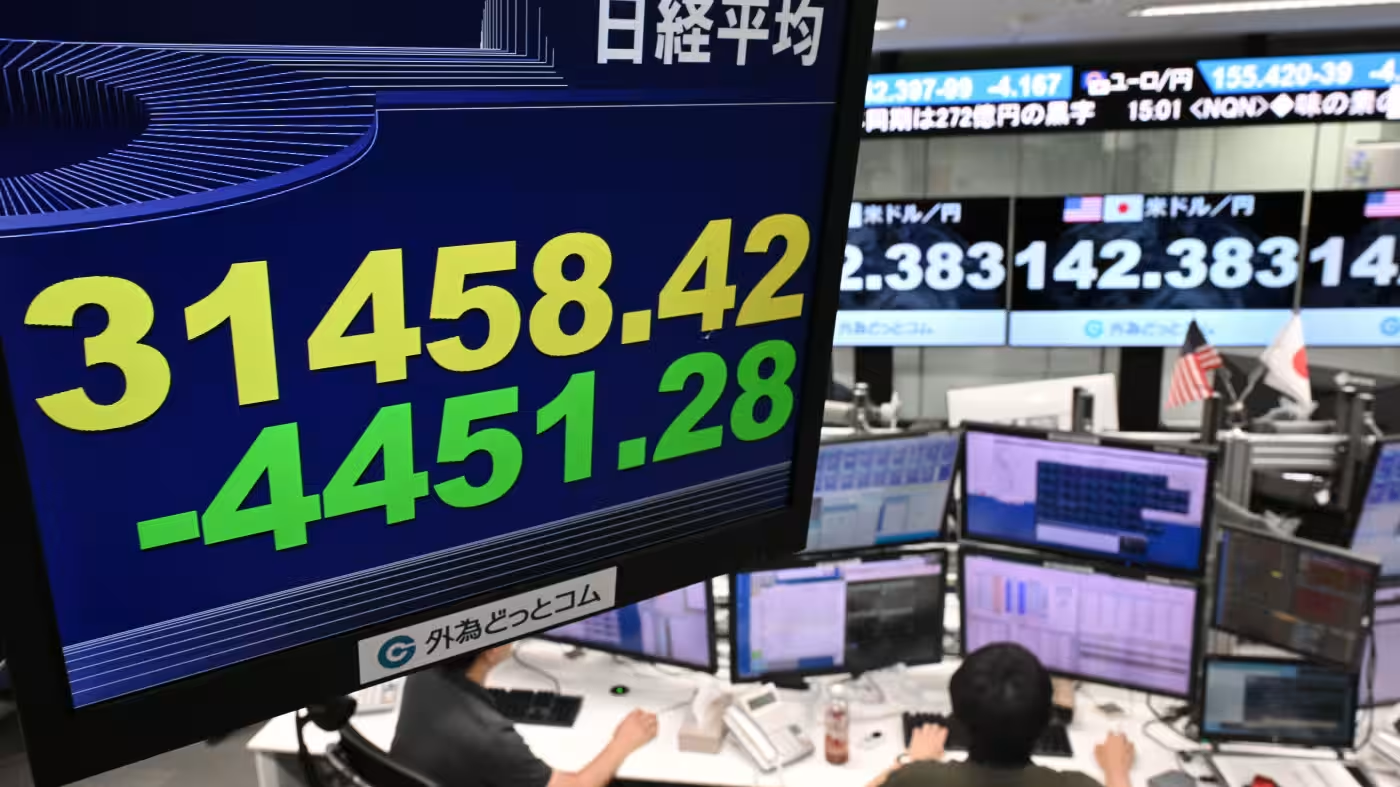
Japanese Stocks ‘Nikkei’ Plunge in Historic One-Day Drop Amid Global Market Rout

Tokyo, August 5, 2024 – Japanese stocks endured their most significant one-day loss ever on Monday, as concerns over a potential US economic slowdown sent ripples of panic through global financial markets.
The Nikkei 225 index, a benchmark for Tokyo’s leading stocks, plummeted by a staggering 4,451 points, marking its steepest decline in history. The index closed down more than 12% for the day, compounding its losses since early July to a striking 25% and officially entering bear market territory.
“This was a crash of historic proportions. The market turbulence today felt reminiscent of the 1987 ‘Black Monday,’” Neil Newman, head of strategy at Astris Advisory in Tokyo, told CNN. Newman’s reference to the October 1987 crash highlights the severity of the current market conditions, which saw the Nikkei plunge 3,836 points during that period.
The dramatic drop underscores growing fears of a slowdown in the US economy, which has intensified global market volatility and spurred widespread investor unease. As financial markets grapple with these uncertainties, the ripple effects are being felt across the globe, further deepening the market turbulence.
Click here to connect with us on WhatsApp
Why did the Japanese market fell 13% in a month ?
The reason for this global sell off lies not in US but in Japan. Japan has essentially being in stagflation since last 40 years. Interest rates in Japan are zero. Traders across the world, especially US hedge funds, used to take these 0 interest loans and invest in risky assets across the world, especially in NASDAQ.
Now on Thursday, the Japanese Central Bank after 40 years increased the interest rates by 0.25% and gave a very hawkish commentary about future rate increases.
This set panic bell amongst the traders who used to
borrow YEN at 0% interest and invest in global stocks especially NASDAQ. US hedge funds pressed the sell button as they wanted exit at any prices.
1 USD which was around 162 JPY a month ago became 147 JPY. This strength in YEN further eroded the earnings of Japanese companies who are mainly exporters thereby forcing the foreign investors there to sell
Japanese stocks.
Now comes the most interesting part. The retail investors in Japan who were over confident and enjoying the bull run and buy on dip trade with Nikkei touching 42000, panicked and started selling too. Imagine the kind of losses they would have made with this sudden downfall. Always remember, big funds and prop desks always pre-empt about the impending negative event and they will always unwound their longs in F&O and create parallel shorts, before selling in the cash market. Thus the Japanese retail investor was caught unaware with the sudden down move and it will take sometime for them to come back in the market.
These 3 set of investors made the Japanese market fell almost 11 % in a month.
Read More: Business News
Discover more from News Khoj
Subscribe to get the latest posts sent to your email.








Post Comment